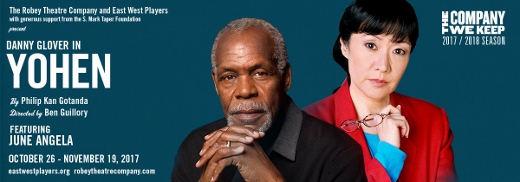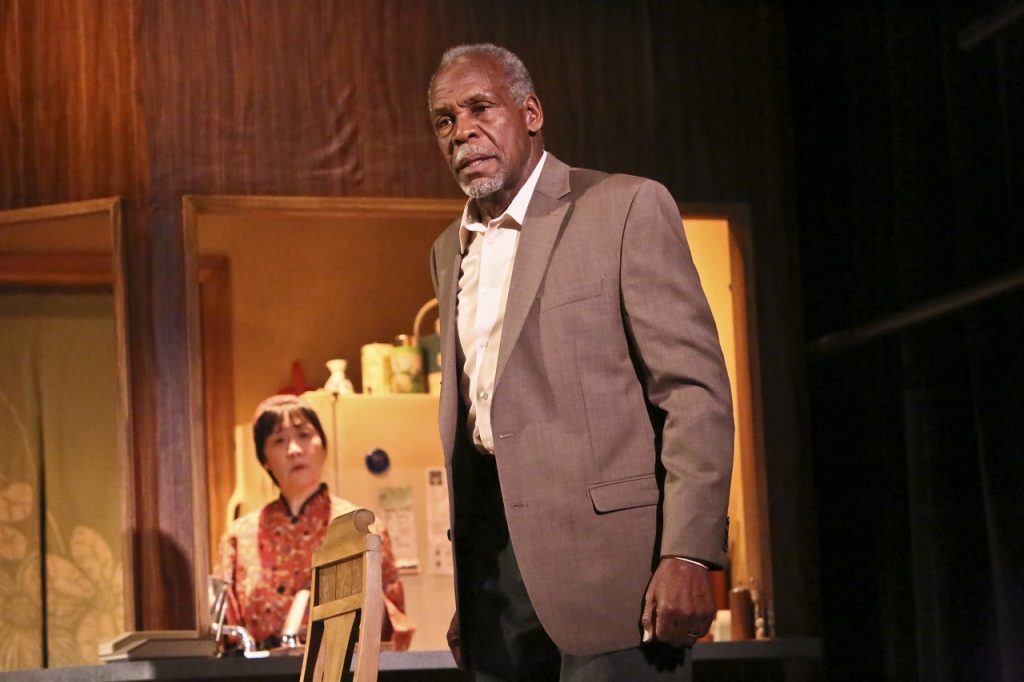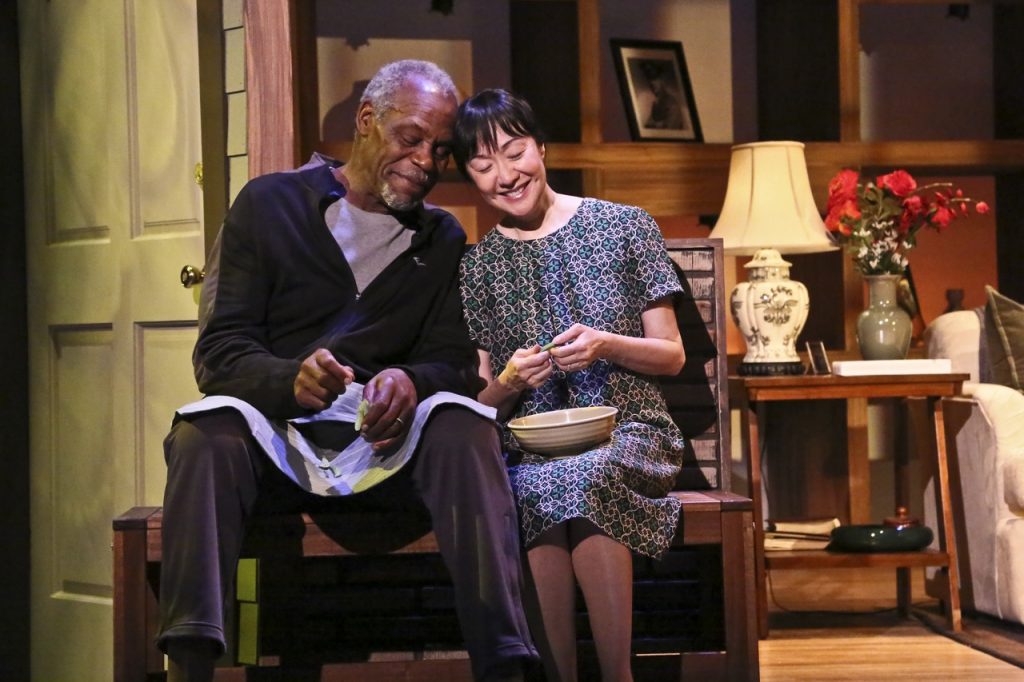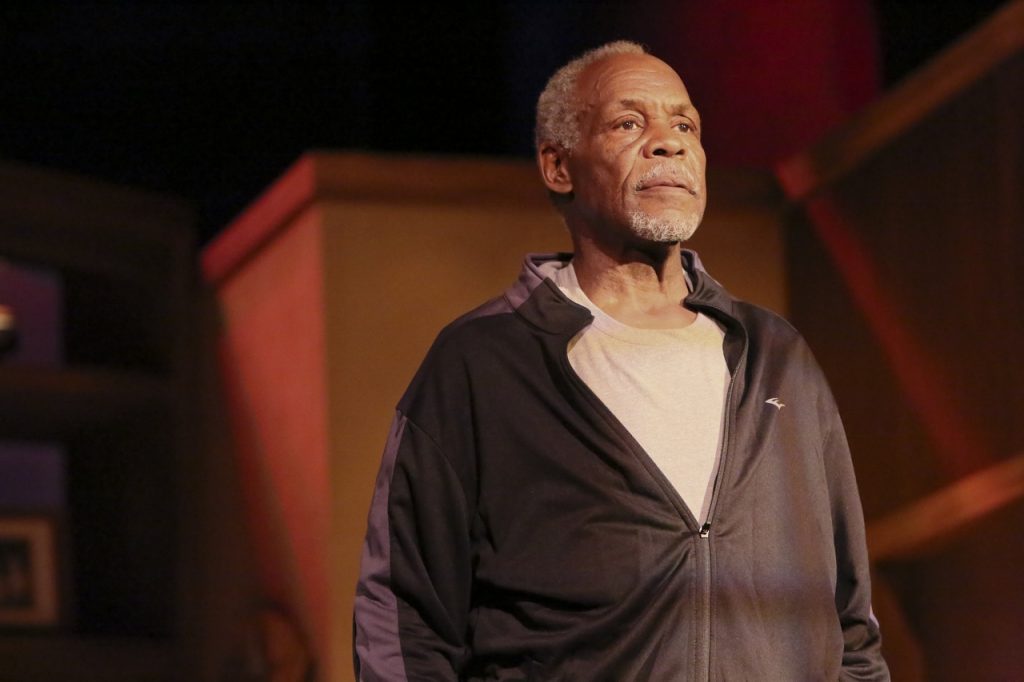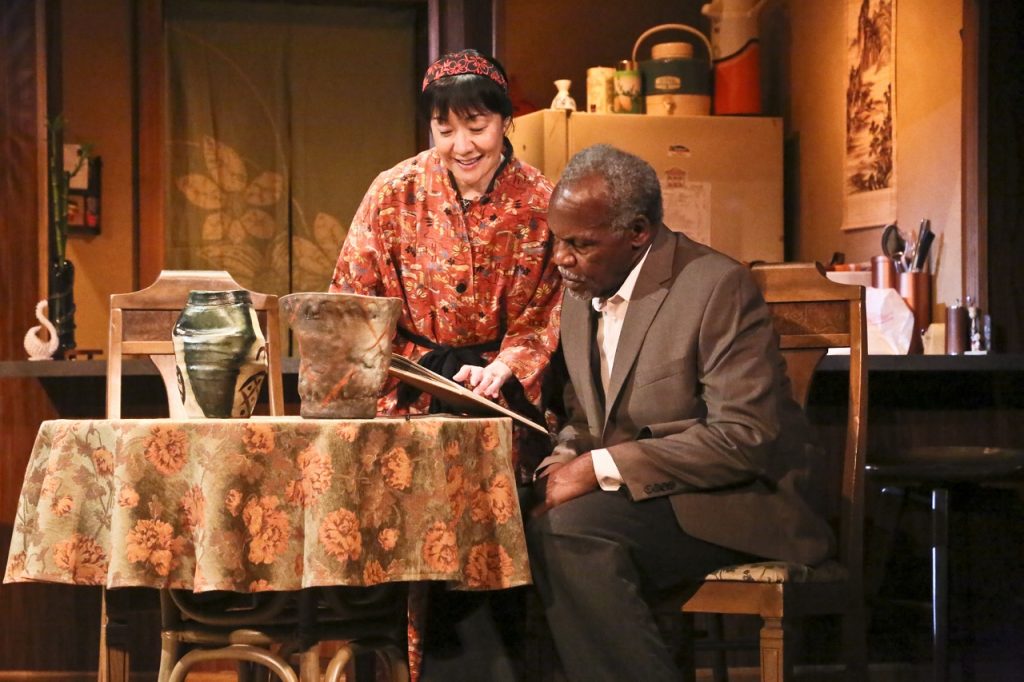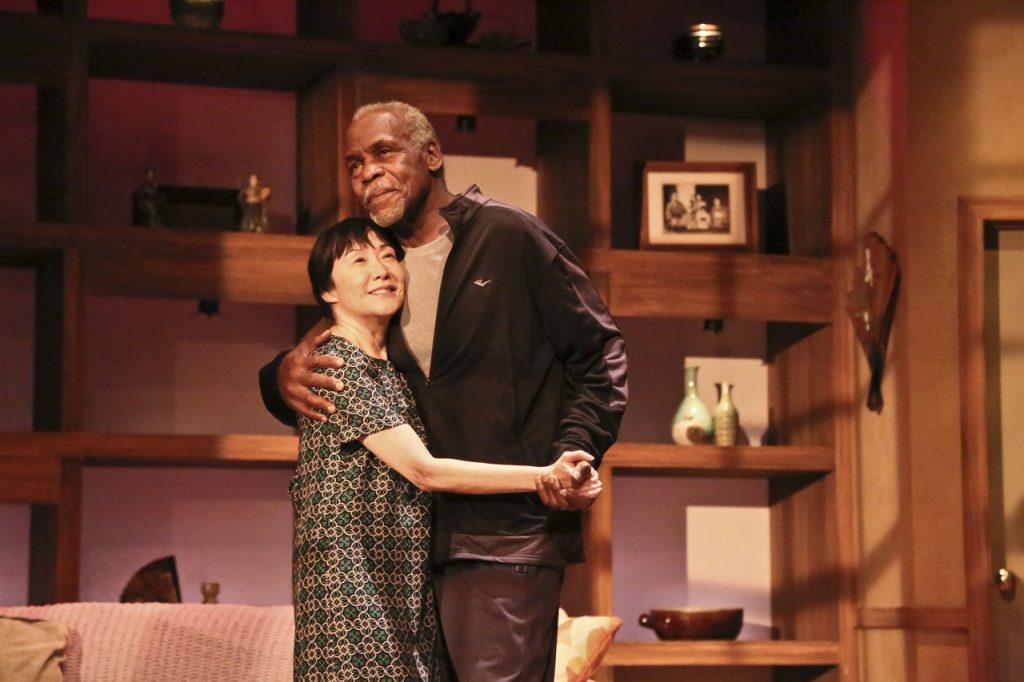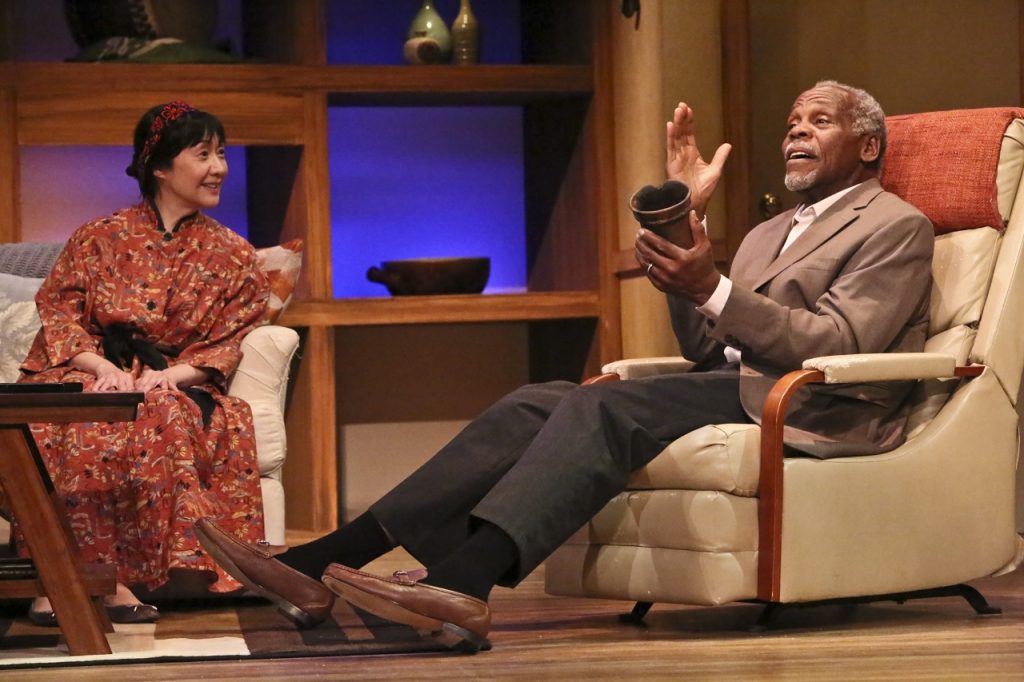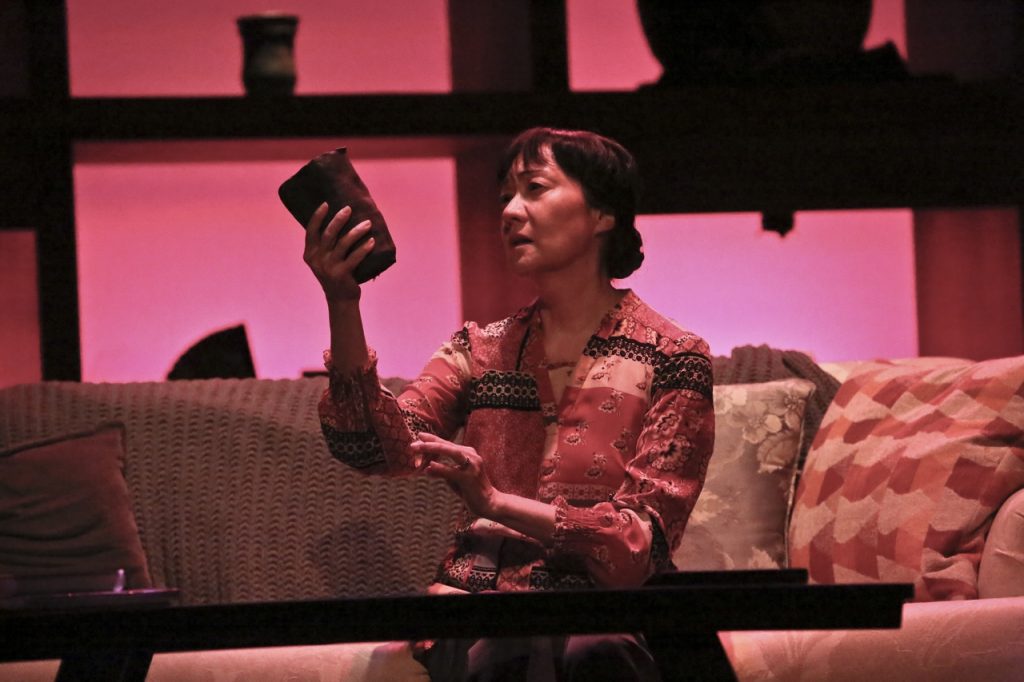DAMAGED GOODS
Playwright Phillip Kan Gotanda’s elegiac drama is a powerful piece that encompasses many themes in a surprisingly tight and concise package; it’s about aging, it’s about the complexity of marriage, and, above all, it’s about a divide between cultures that may or may not be reconciled through love. It’s a drama about the imperfection of human relationship—as symbolized by the metaphor of a type of Japanese pottery, “yohen,” which is damaged during the kiln firing process, but is honored for its ugliness nevertheless.
The play centers on the marriage between now-retired African-American military officer James (Danny Glover) and his Japanese wife of 37 years, Sumi (June Angela). Following years of a long marriage—they met in occupied Japan just after the end of WWII—the couple now lives in Los Angeles, in what seems like the late 70s or early 80s.
Feeling that their relationship has become stale, Sumi decides to try something to shake things up. She and James agree to separate for a couple of weeks, and then meet again as though they are going on a “first date.” However, it is as they commence their first date, and are forced to appraise each other across the enormous gulf of cultures that separates them, things become more complicated than they expected. Sumi starts to realize that she wants something more from her marriage than just the drudgery of taking care of James—and she wants to go back to school. Meanwhile, James, who spends most of his retiree days down at the local boxing gym acting as a mentor to troubled kids, comes to grips with the fact that he and Sumi’s decision not to ever have kids has left their lives sad and sterile.
Director James Guillory’s staging is a remounting of a 1999 co-production between East West Players and the Robey Theatre Company, which also co-produces here. Gotanda’s drama is thoughtful and often quite melancholy, although there’s a lot of wisdom in the discussion of the nature of long term relationships. The show hasn’t aged badly; really, Glover, who appeared in the original production, only seems better cast now, if possible and imbues his character with a gravitas and fragility that is tender and appealing.
At the same time, the writing tends to be flat and full of confusingly thought out logical points. The play’s issues are genuine: How do we bridge the gaps between two cultures? What happens when a couple grows apart over a lifetime? Yet, there’s something false about the play’s premise that these characters haven’t broached the concerns sometime over the, say, 37 years of their marriage. The writing relies far too much on the “do you remember’¦” types of conversations that are unduly static, and on expressions of cultural conflict that might make sense on a casual introduction, but which seem ridiculous after 30 years of marriage.
And, yet, if we accept the loose logic, the arguments do possess emotional impact. Angela’s beautiful performance as Sumi captures the sense of an “outsider” who has been adrift for much of her life in a weird world she barely understands, but who is only now starting to come into her own gifts and personality. Glover, whose James is an an outsider even within the American culture of his own birthright, offers a nicely angry, frustrated turn as well.
It is unfortunate that on the night I attended, the performances were beset by frequent egregious incidents of forgetting or mangling of various line readings. Although one expects a moment or two of “going up” during a play, it has been several performances since opening night, and the sheer number of confused line readings actually served to distract and create a tense atmosphere in the audience, undercutting the delicate sentiments and also making it hard to really understand what the characters were talking about from scene to scene.
photos by Michael Lamont
Yohen
East West Players and Robey Theatre Company
David Henry Hwang Theater
120 Judge John Aiso Street
ends on November 19, 2017
for tickets, call 213.625.7000 or visit East West Players
